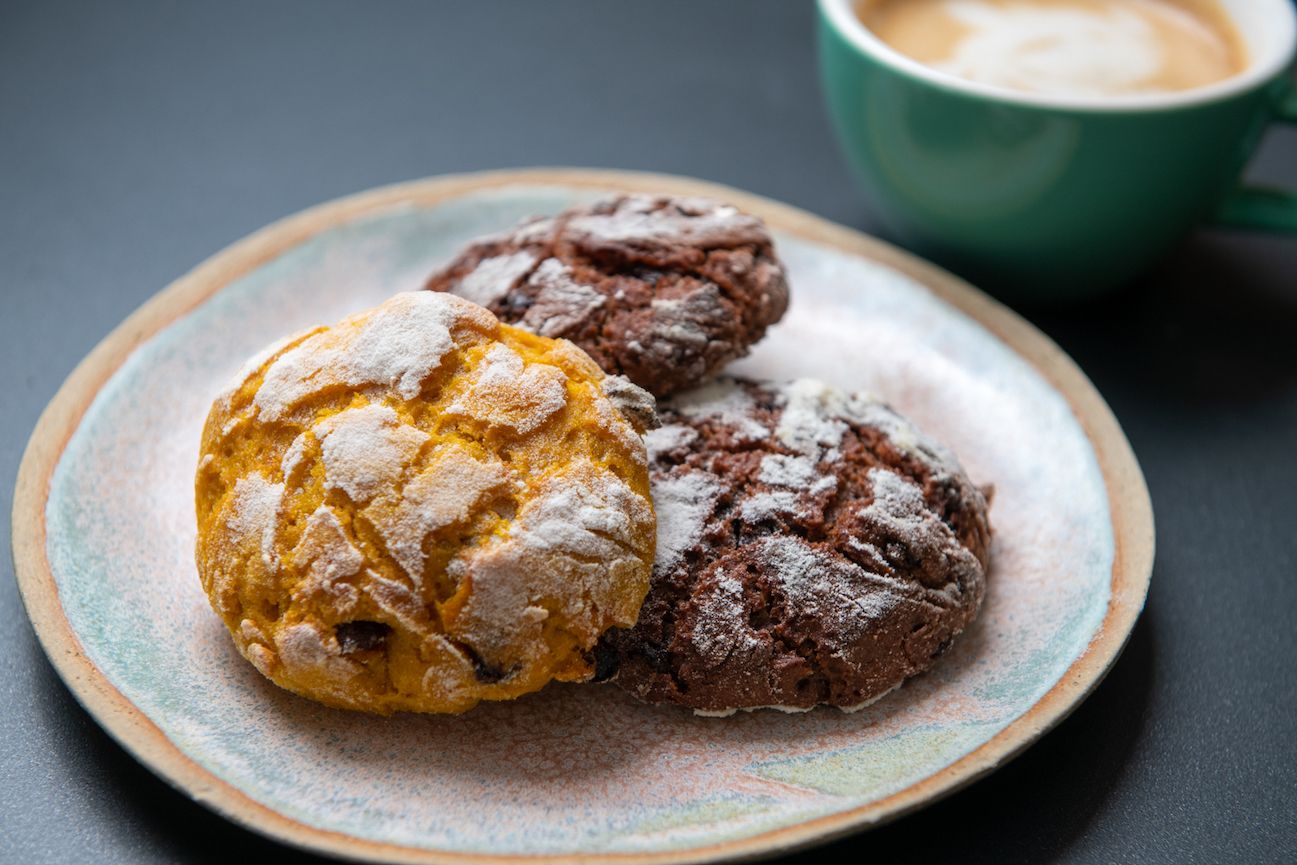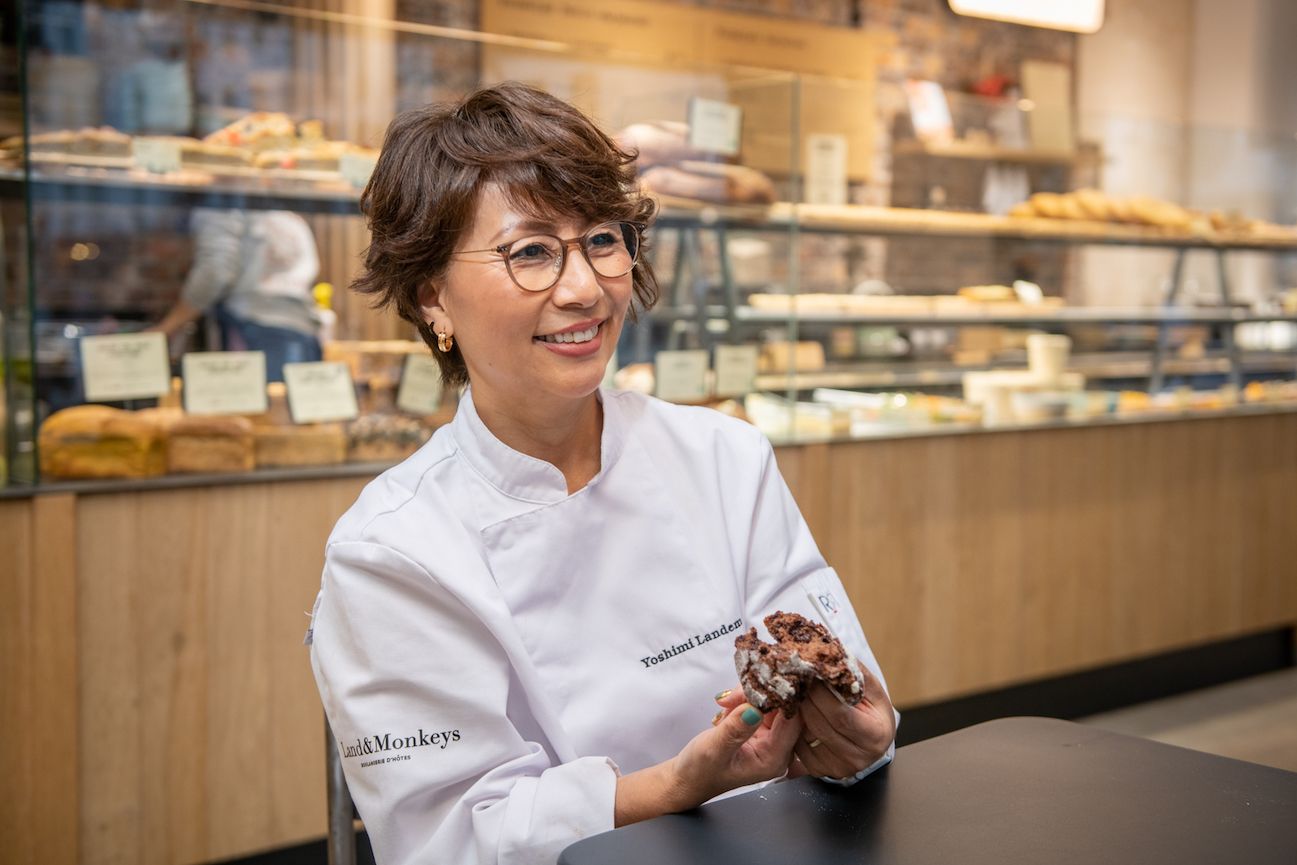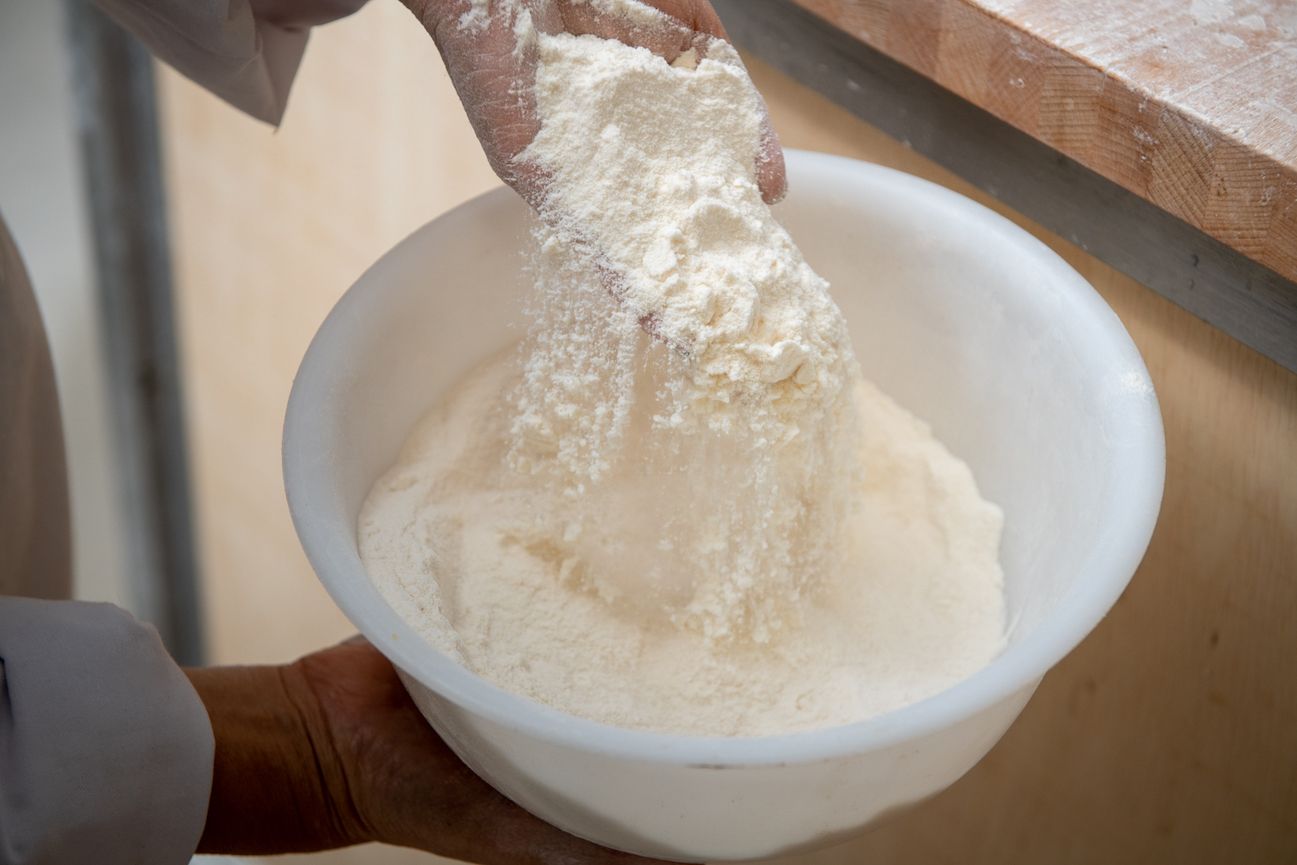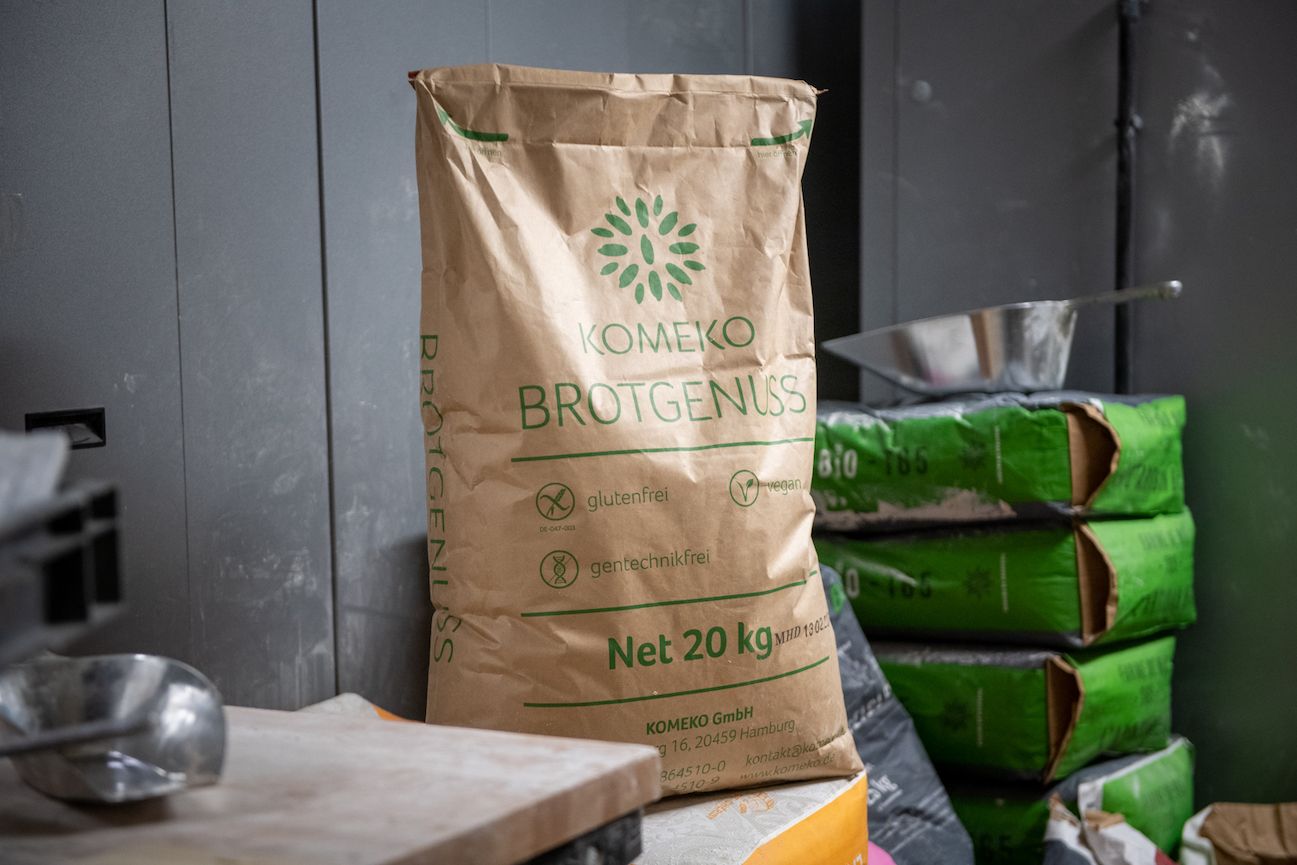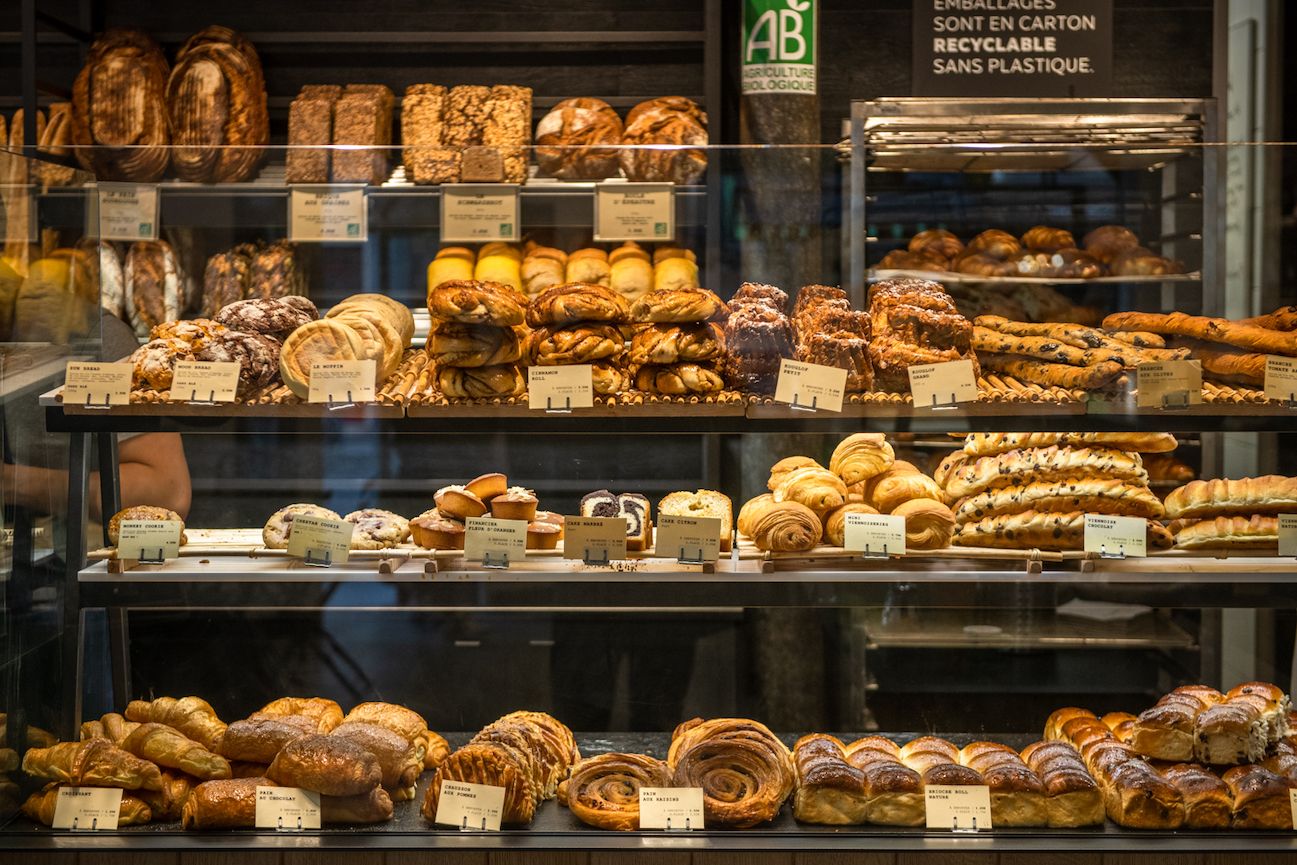
Bread made by 100% vegan Boulangerie, from rice flour produced in Japan
Popular Boulangerie and Patisserie “Maison Landemaine” operates 20 outlets in France, and four in Tokyo. Then, last year, it opened its entirely vegan shop “Land & Monkeys” that offers 100% vegetable-based products. It instantly became talked about, with the popular item of the shop being a semi-hard bread made using rice flour produced in Kagoshima Prefecture. The owner and bread artisan, Yoshimi Ishikawa, has confidence in it, having worked on developing it from rice flour yeast she grew. Yoshimi came across rice flour in 2018, when she was appointed Japanese rice flour ambassador for The Japan Food Product Overseas Promotion Center (JFOODO), in order to help spread rice flour within Europe. She spoke about the charm of rice flour at their newest outlet opened in June this year in the Marais district.
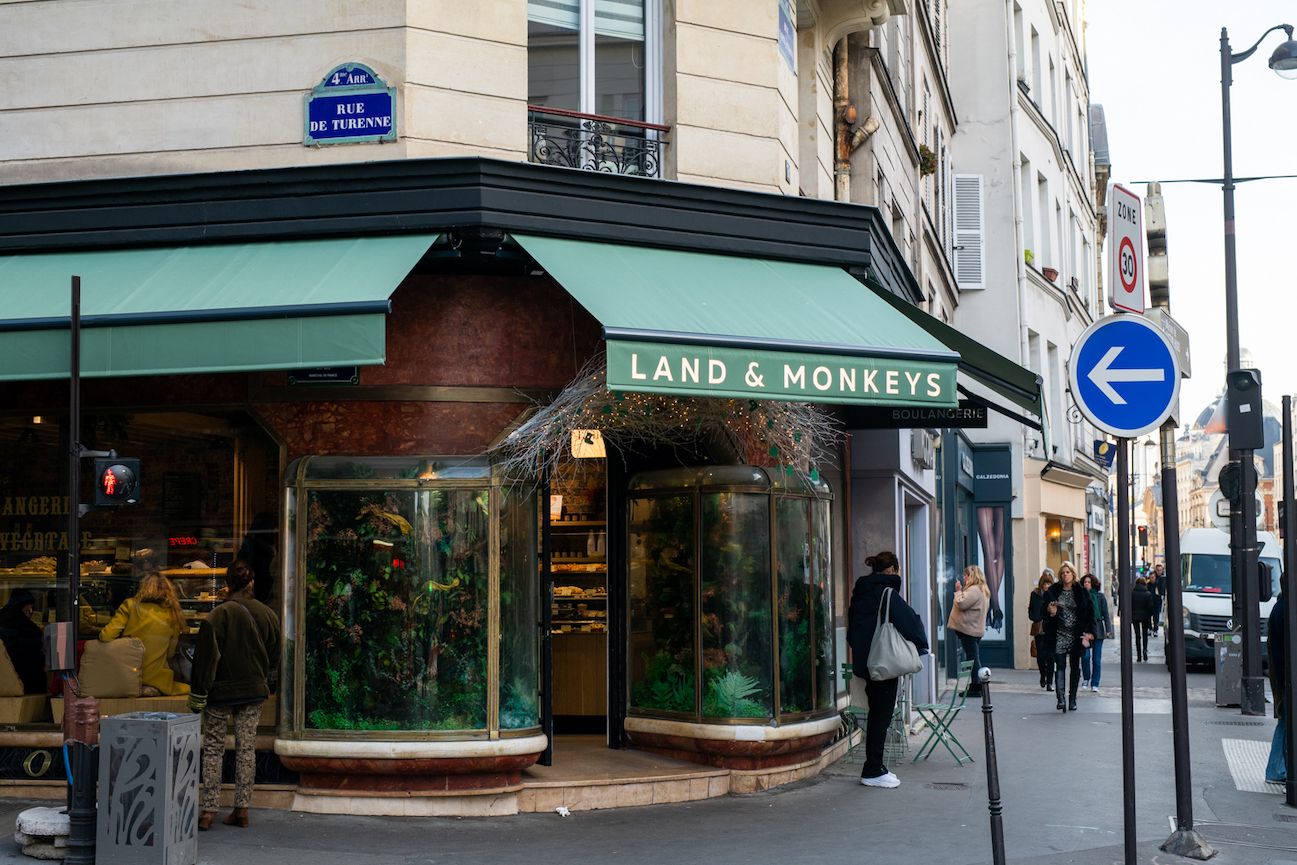
“Land & Monkeys” Turenne shop is the fifth and most recent to open in Paris.
Since the first outlet opened last spring, five “Land & Monkeys” outlets have opened, which are bustling even after lunchtime with customers seeking bread and cakes. The distinctive feature of “Land & Monkeys” is that neither butter, milk, cheese, meat or fish are used, and only 100% vegetable-based products are offered.
“We are confident that we completely replicate a French Boulangerie and Patisserie, despite using no animal-based ingredients. Around 30% of our customers are vegan or vegetarian. There are also many health-conscious individuals. In addition, some people come to buy things ‘Because they are delicious’, and many live locally”, said owner, Yoshimi.
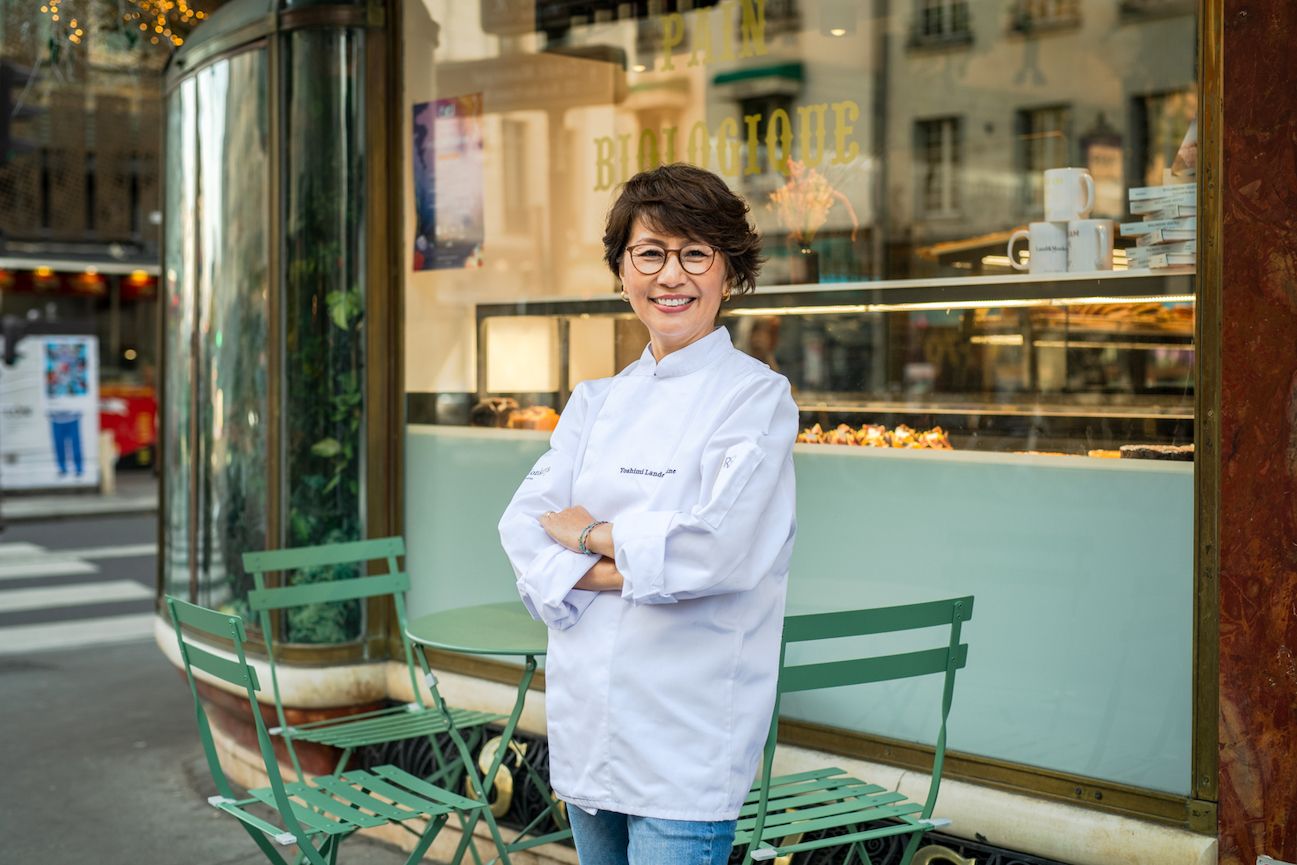
Yoshimi Ishikawa has lived in France since 2002. She is particular about raw ingredients such as organic flour and natural yeast. She opened the first Maison Landemaine outlet in 2007 with her husband, Rodolphe Landemaine.
Among the products, gluten-free rice flour bread is a best-seller. The chocolate flavor variety is particularly popular, and is said to fly off the shelves the moment it is put out on show. This semi-hard bread was developed from rice yeast by Yoshimi.
“In 2018, when I was asked to take on the role of Japanese rice flour ambassador, I touched rice flour for the first time. I’m a pro in wheat flour, and wasn’t interested in rice flour up till then. I took hold of the opportunity, however, to create something proper, and firstly worked on growing natural rice yeast. I succeeded in growing amazing natural yeast with a fermented smell like sake. It was then that I considered starting anew and focusing on it, and was appointed Japanese rice flour ambassador”.
On the outside, the rice flour bread is crunchy and has a baked aroma, while inside it is springy. Such textures are rarely to be found in wheat bread. Yoshimi wanted to bake the hard-type breads popular in the shop, rather than soft breads like brioche, as long as they could be baked in the shop oven.
“Semi-hard rice flour bread is unusual, and its shape and texture are new. I was worried if the texture would catch on, but when we had French people try some samples, there were many who said, This texture is good! and so the product reached commercialization stage. It gradually gained popularity, and is now a product selling extremely well.
She uses rice flour produced in Kagoshima Prefecture. When she became Japanese rice flour ambassador, she carried out trials using several rice flour samples, and adopted the rice flour that was best in all factors, including water absorption and how it bakes.
“I’ve always used the same rice flour. Japanese rice flour is chiefly used to make Japanese confectionery, so apparently it is ground so as not to crush the starch particles. I did, however, come across rice flour that was ground to crush the starch particles, which allowed air in nicely, and I was able to create the texture I wanted. With other rice flour, the middle sinks in flat like a rice cake”.
At the time, the need for gluten-free was scarce, but “In the last few years, there has been a sharp increase in those seeking gluten-free products. From the start, when establishing Land & Monkeys, we thought about rice flour bread and other gluten-free products in the line-up”.
The reason behind opening Land & Monkeys was that seven years previously the couple had become vegan, for the sake of the sustainable environment. They are also particular about selecting local organic products for the ingredients to make bread.
“In consideration of the environment, the wrapping used in the shop is plastic-free. Instead, we use craft paper. We ask our suppliers, too, not to put items in plastic containers. As we are aiming for zero waste, vegetable ends and fruit peelings are collected by a company gathering material to make compost. Also, a part of our income is donated to environment conservation and animal welfare groups”.
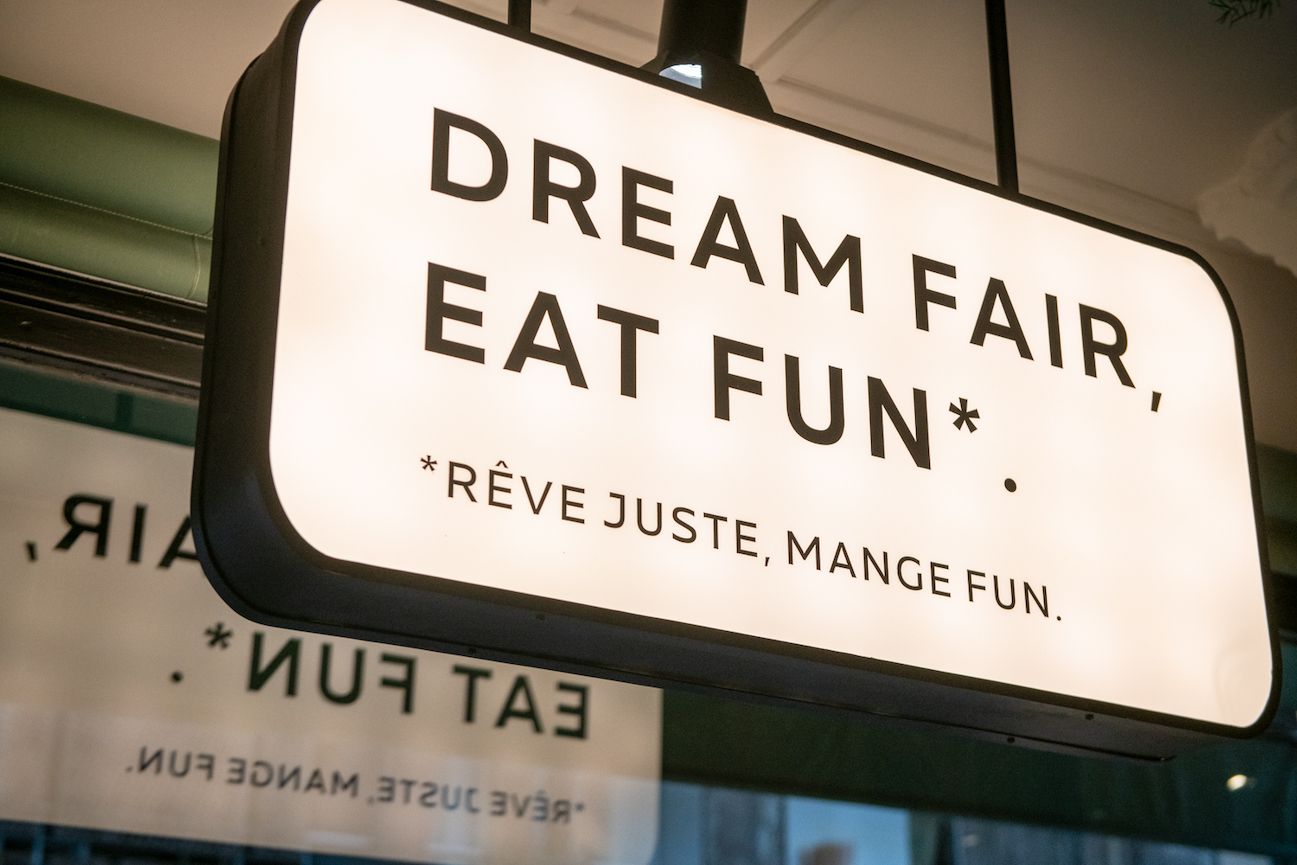
The shop slogan: “Dream fair, eat fun”. Discovering that by not eating animal protein, CO2 emissions are greatly reduced, the couple became vegan seven years ago for the sake of the environment.
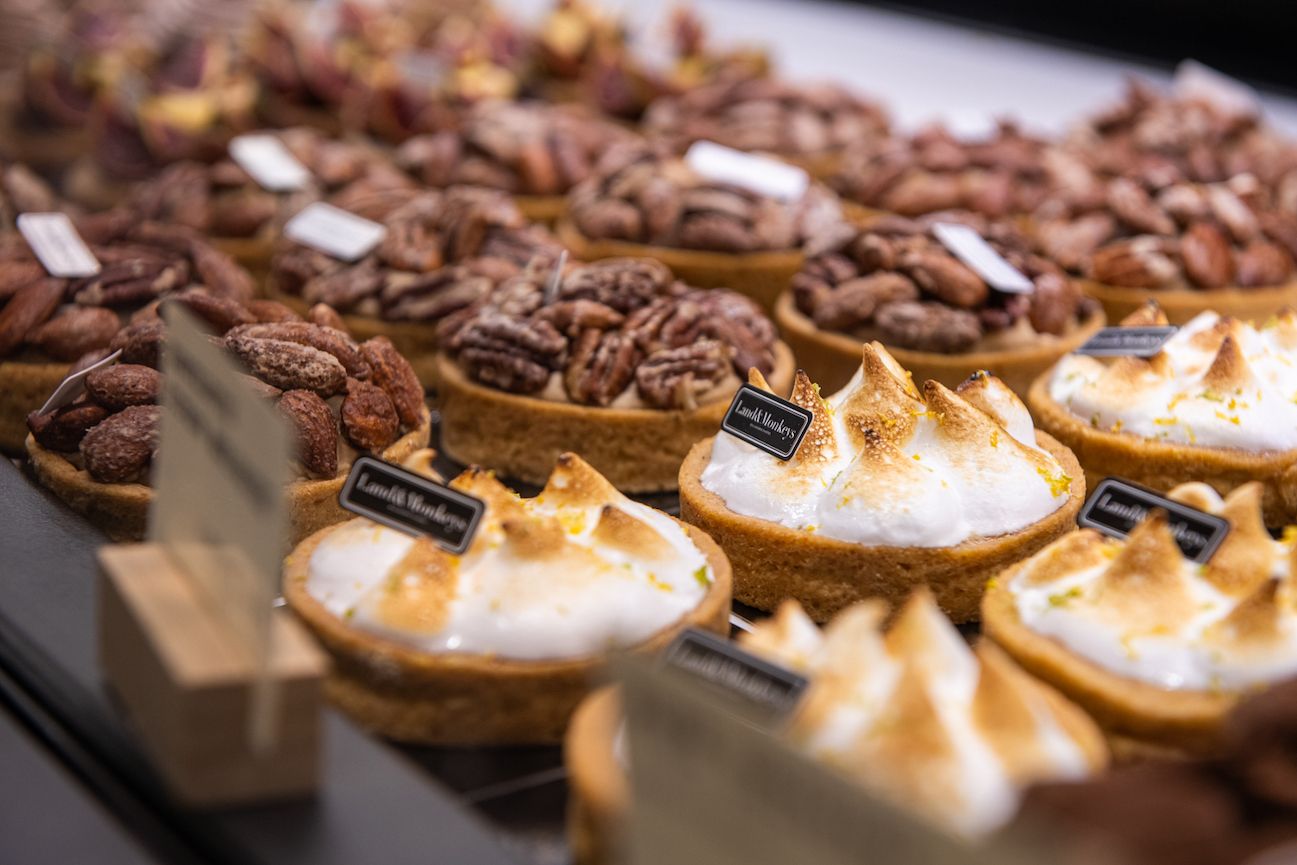
The delicious cakes are, of course, also vegan. They use seasonal fruits, etc., too.
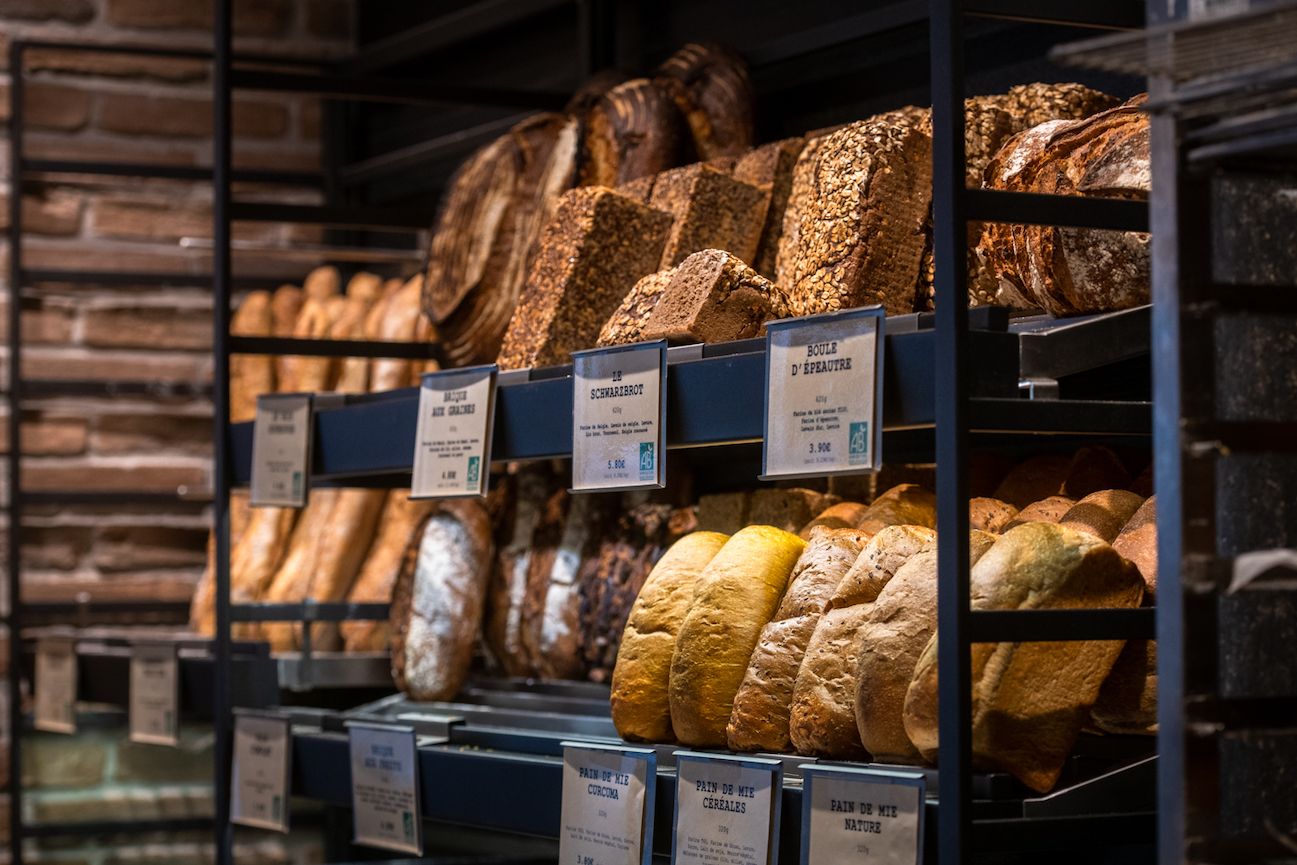
From hard-type bread to viennoiseries, there is a line-up with rich variety.
Meanwhile, at “Maison Landemaine”, in addition to rice flour, they adopt many different ingredients produced in Japan. “The concept of “Maison Landemaine” is to express the two countries of Japan and France. For that reason, we use many ingredients produced in Japan. At Maison Landemaine, not just bread, but light meals such as prepared dishes and salads are on sale, and the summer of 2021 featured Chirashi-zushi (topped vinegared rice) with shredded omelet and vegetables under the name of “Tokyo bowl”. We have also featured curry with rice, and spinach Gomaae (dressed in sesame dressing). Furthermore, the theme of this year’s festive-period cakes is cherry blossom. They are created using sweet white bean paste and salted cherry flowers and leaves. Other Boulangeries and Patisseries in France don’t know the correct use of Japanese ingredients. They can make Japanese-style items, but they do not have an authentic Japanese taste. Maison Landemaine’s strength in that area is that I am Japanese, so we have the knowledge of ingredients from the two countries. Our customers, too, trust this shop to hold onto both Japanese and French cultures”.
Japan-produced ingredients that she wants to try using next are miso and plums. She says she is considering kneading miso into bread. “Plums are delicious sweetened or salted, so I think they can be used in various things”.
While they say Maison Landemaine is a national brand unfolding mainly in France, they say they are looking to expand Land & Monkeys into other countries in the future, which will be exciting. And it so happens that, in spring of 2022, her son, who studied fermentation at agricultural college in Japan, will open a pickles shop in Paris. “The shop, named “Wa no ka”, will open in The Marais. My previous husband, his father, owned a pickles shop, and so, in Paris, he will make the pickles that he was familiar with from an early age. He plans to sell organic pickles and tofu, and turn into a restaurant at lunchtime selling o-bento lunchboxes. I’m expecting the shop to become a venue introducing to France the very thing that is Japanese culture”.
Text: Miyuki Kido; Photos: Taisuke Yoshida

